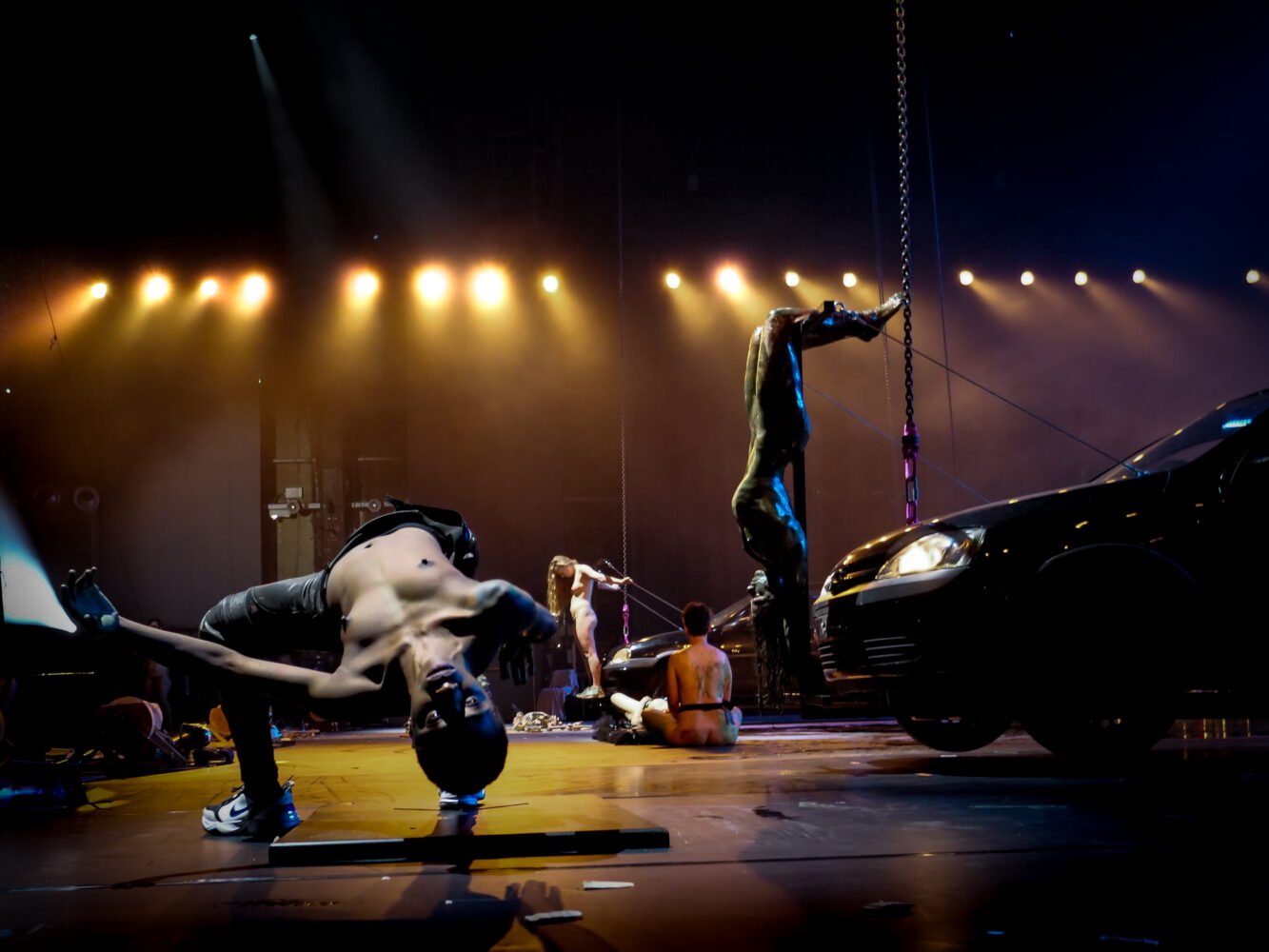Flo Holzinger
The Berlin-based choreographer, Florentina Holzinger, uses dance to explore the limits and physicality of the female body, as well as more general themes such as female representation.
Her trilogy project, Recovery, featured 3 performances; Apollon, TANZ and A Divine Comedy, all of which examined how the female body is ‘cultivated, shaped and transformed’ via different physical disciplines. A ballet class goes gross and brutal in TANZ, as motorbikes appeared on stage and bodies contorted in abnormal ways.
Holzinger’s work is unapologetic, uncompromising and visually appealing on stage. With potential to unsettle an audience, how far a female body can go is reticent of the continued control, objectifying and sexualising of female bodies, and how dance, a typically feminine, pretty form, can be subverted to showcase such dialogues.
Holzinger is currently an associated artist at the Volksbühne am Rosa-Luxumburg-Platz in Berlin (from 2021-2026).
Hello, it’s 01:25 over here in Melbourne, Australia, what would you usually be doing at that time of the night during a weekday?
Most probably sleeping.
Your work explores themes of women’s, do you think much has changed in the Art world when it comes to using our bodies for art’s sake?
For sure a lot has changed, but also history repeats itself and repressive tendencies come and go in waves. We are all children of the culture we grew up in, and that had a certain strong imprint on us. I pretty much produce work from my own experience, being born like this in these times in a specific place. I don’t know everybody’s experience; I actually do like to challenge my own perception of possibilities in relation to that. It has been an inspiration to me to acknowledge my privilege to exercise a certain freedom (on stage) and really take advantage of that, it has taught me a lot of helpful things about how to be a happier person in life.
You feature extreme sports quite often in your performances, what is it about motorbikes that sees them be recurring props on stage? Or are they more than props?
There are different associations with motorised objects that I find helpful for our shows: they are charged status symbols and represent masculinity, speed and power; they are the by-product of a capitalist society; representing pollution and excess etc. We try to take control of these symbols and aim to turn them into something else - something sublime. Usually they fly in our shows, devoid of motor and engine, they become objects of flight or machines with which to physically connect and become one. One of our tasks for shows, and my interest in dance in general, is practicing to become more than human; one can learn a lot from machines in regards to that.
Your project, Recovery (I think you mean TANZ?), reminds me of Suspiria. What was going through your mind in the early stages of gestating this project?
Having studied dance many years myself, I always found it absolutely logical that a dance school hosts an undercover witch coven. That was pretty much my experience of my teachers in dance school, and of most of the things I learnt there.
Studying dance is a pretty magical thing, but for me, the work we did with our bodies was also always somehow terrifying. This complicated combination of feelings towards the body and dance is what still inspires most of my works.
For TANZ we wanted to take on classical ballet and use it to explore simple human obsessions: beauty and the body in flight.
Is being asked what your inspiration is, or who is your inspiration, a clichè, or do you find something charming about it?
It’s good to remind oneself of one’s inspirations.
How do you wind down after a performance, it seems very physical and emotional.
For me, performing is generally recreational, I find life itself more exhausting.
Bonus question: what do you usually do at 13:25 during a weekday?
Eat.
interview JULIANNA P
What to read next














